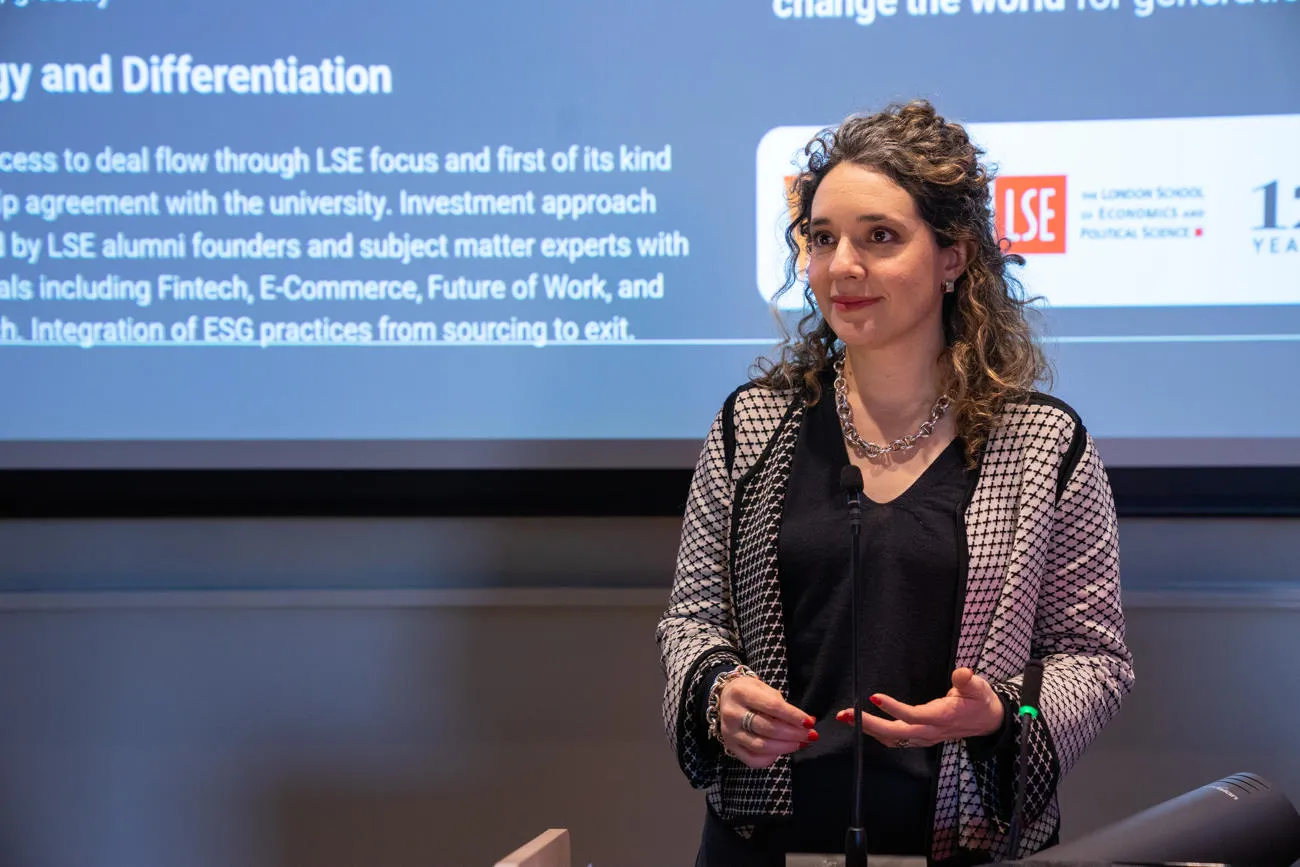Venture capital serves as a critical source of funding for new ventures and start-ups, which can accelerate economic growth and development. Access to capital is often a major hurdle for entrepreneurs, and venture capital can provide the necessary funds for entrepreneurs to develop and launch their innovative ideas. Additionally, venture capital investors can provide support for businesses at different stages of development, from seed financing to later stages of growth. This financing can help businesses navigate the challenges of scaling, gaining market share, and increasing profitability.
We spoke to Dr Juanita Gonzalez-Uribe, Associate Professor in Finance in the Department of Finance at LSE and course convenor on LSE Online’s Entrepreneurial Finance course, to find out more about the course and her role at LSE.

We’d love to find out a bit more about you, can you talk a bit about your role at LSE?
“I do two roles at LSE. I am an Associate Professor in Finance, teaching Entrepreneurial Finance and doing research about entrepreneurship, private equity, and private markets. I'm also Co-Director of the Financial Markets Group, which is our main research centre in the Finance department. We try to really understand the causes of things and what impact finance is going to have in the real economy.”
Can you talk about what you’ve been working on recently?
“One of the main projects that I've been working on recently is understanding the impact that participating in the selection processes of seed venture capital funds can have on entrepreneurs. We already have very good research on the impact that venture capital investors have on a company, and we know that these investors provide financing where other investors wouldn’t, but what we know less, and what the research is really trying to capture, is the potential value to entrepreneurs from participating in the selection processes of these investors, even if they don't get funded. There's lots of investors at the seed stage in the economy, and they are running the election processes all the time. And so, the question is, is there really any value for entrepreneurs from participating in this process or is it more of a waste of time and effort if it doesn't result in finance. What we find is that it's extremely valuable to the entrepreneurs and this points to the idea that for entrepreneurs, the main friction may not necessarily be not having enough capital. By going through this selection process, they receive valuable resources like feedback and questions that help them think about their business in a more strategic way, and that leads them to have a better business going forwards and eventually raising financing from other investors.”
How can people learn more about The Department of Finance?
“The Department of Finance and The Financial Markets Group are organising a lot of events around entrepreneurship. For example, during Spring Term every Monday we have a series of special guest lectures where we invite people from the industry to come and talk to us about key topics both in entrepreneurial finance, entrepreneurship, and investing in general, so that’s really exciting.”
What are some key challenges today in Entrepreneurial Finance?
“The key challenge today in Entrepreneurial Finance is really just fundraising, and right now is one of the most difficult fundraising cycles that I've ever experienced. Understanding how to be able to secure a financing round even in a bad market is one of those key questions that we look at in the LSE Online Entrepreneurial Finance online certificate course.”
What key topics does the Entrepreneurial Finance course cover, and what can learners expect to gain from this course?
“The key topics that the Entrepreneurial Finance course covers are the answers to questions that any business should be able to answer in terms of their financing; when should they raise money, for whom should they raise money, at which terms, and very importantly, what are the long-term consequences of those decisions on the business?”
Who would you recommend this course to and why?
“This course is really designed for anyone who’s interested in working in the entrepreneurship world. It’s a great course for anyone looking to become a founder or an investor at some point in their lives, but it can also be for advisors or any employee in a young business as financing is super intertwined with the health and the growth possibilities of the business. It’s important for everyone involved in a young venture to understand finance because these businesses are so dependent on external funding.”
How can students apply the skills they learn on the course into their work?
“The course is very much entrepreneur-centric, and what we try to do is develop frameworks and tools that students can later apply as both founders of their business, or if they're investing and trying to figure out what the best businesses are to invest in. We’ll ask, what are the long-term implications of the financing decisions we make today? How we think about long-term decisions is one of the key areas that we explore in this course.”